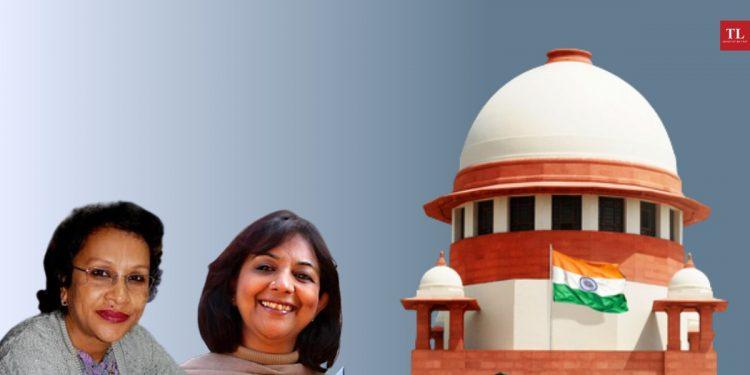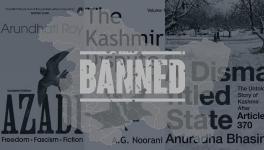Journalists Patricia Mukhim, Anuradha Bhasin Challenge Constitutional Validity of Sedition Law

Days after the Chief Justice of India(CJI) expressed reservations about the existence of India’s sedition laws, two editors of newspapers based in Meghalaya and Jammu and Kashmir, Patricia Mukhim and Anuradha Bhasin respectively, have approached the Supreme Court challenging the constitutional validity of the Section 124A of the Indian Penal Code(IPC).
In their plea, the duo has contended that the offence of sedition was an oppressive legal device inherently susceptible and amenable to being deployed to curb free speech, freedom of the press, criticism, dissent and to punish critical voices in a democracy.
“It is a relic of the colonial past, used numerous times to criminalize free speech and journalism, and was part of an arsenal of laws commissioned by the colonial rulers to police the minds and penalize Indians”, the petitioners say.
It contends the word used in Section 124A of the Indian Penal Code are incapable of being defined with sufficient definiteness, and thus it suffers from the incurable vice of vagueness and overbreadth.
Referring to the misuse of sedition, the plea states the lived experience of the last six decades leads to the irresistible conclusion that unless the impugned provision is deleted from the Indian Penal Code it will continue to haunt and hinder the full realization of the rights to free speech and the freedom of the press.
Also read: The Case to Amend Sedition Law, India’s Self-Inflicted Wound
The plea goes on to state that in the democratic Republic of India which is committed to constitutionalism, the offence of sedition has no place in the statute books, especially since incitement to violence and actual acts of violence are already adequately prohibited and punishable under other penal provisions, safeguarding the sovereignty and integrity of the country, security of the state and public order.
The plea filed through Advocate-on-Record Aakarsh Kamra urges the court to strike down Section 124A of the IPC and issue an order quashing all pending trials, proceedings and investigations insofar as they pertain to Section 124A of the IPC.
The petition has been settled by advocate Vrinda Grover. It has been drawn by advocates Soutik Banerjee, Mannat Tipnis and Devika Tulsiani.
On July 15, a CJI NV Ramana-led bench criticised the existence of a law on sedition even after 75 years of the country’s independence. The sedition law is a colonial law, he said, while pointing out that it was used against freedom fighters like Mahatma Gandhi and Tilak. “Is this law still required to exist?” he asked. He was hearing a petition filed by army veteran S.G. Vombatkere against the law, in which the bench issued notice to the Centre.
Also Read: The Law of Sedition and Bal Gangadhar Tilak
In a similar petition filed by journalists Kishorechandra Wangkhemcha from Manipur and Kanhaiya Lal Shukla from Chhattisgarh, the top court on April 30 agreed to examine the validity of the sedition law and issued notice to the Central Government as well as the Attorney General for India.
NGO PUCL has also filed a petition challenging the validity of Section 124A of the IPC.
Get the latest reports & analysis with people's perspective on Protests, movements & deep analytical videos, discussions of the current affairs in your Telegram app. Subscribe to NewsClick's Telegram channel & get Real-Time updates on stories, as they get published on our website.
























